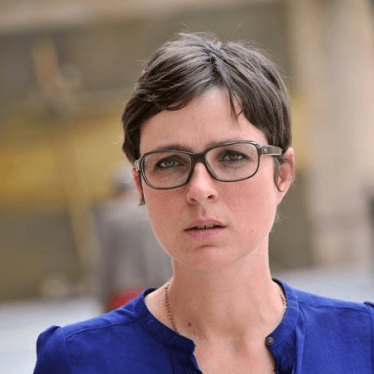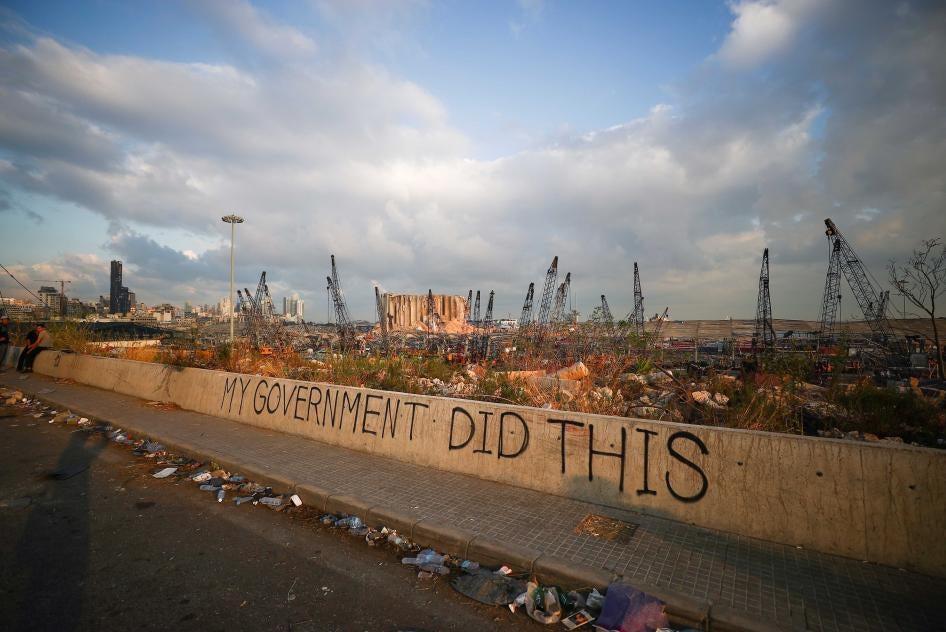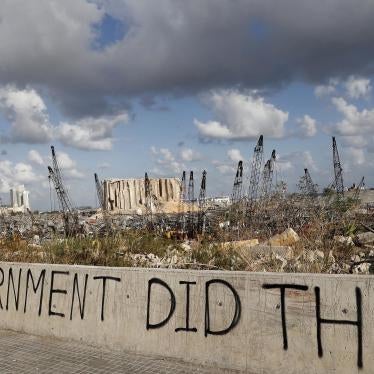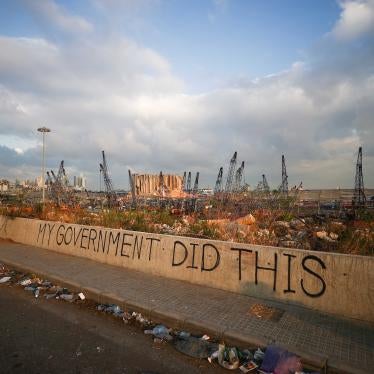On June 3, the survivors and victims of the catastrophic explosion in Beirut’s port held their latest news conference decrying the lack of accountability for one of the biggest non-nuclear explosions in modern history, which ravaged their city, their homes, their bodies, and their families.
One by one, those who had lost loved ones or who were maimed in the explosion on August 4, 2020, expressed incredulity that almost two years on, the accused politicians have managed to indefinitely suspend the investigation. Some of the politicians charged in the case were recently re-elected to parliament, and the government has provided the survivors with little to no support to rebuild their lives.
Many of the families of the victims anticipated that justice would be hard to come by in a country plagued by a culture of impunity that for decades has allowed high-level officials to escape accountability for grave crimes and human rights abuses. They appealed to the international community to establish an independent investigation under the United Nation’s Human Rights Council, hoping that an impartial inquiry would give them the answers that the Lebanese authorities have denied them.
Over the past two years, Human Rights Watch has worked with the families of the victims to drum up support for such an investigation. We have written letters to the members of the Council, organized news conferences urging the international community to act, and met with diplomats in Beirut, Geneva, and various capitals around the world. But the victims’ pleas were met with silence, apathy, or obfuscation.
France’s position has been particularly troubling. President Emmanuel Macron arrived in Lebanon only two days after the blast, parading around the shattered streets promising the population that “I’m not here to help them, I’m here to help you.” He told reporters that “an international, open and transparent probe is needed to prevent things from remaining hidden and doubt from creeping in.”
Despite the neo-colonial overtones of his visit, many hoped that it signaled a shift from the traditional French policy toward Lebanon of unconditionally propping up an increasingly corrupt and incompetent political class through diplomatic overtures and multi-billion dollar donor conferences.
However, in the two years since, Macron has not only backtracked on his promises. He has also given the embattled Lebanese political class a lifeline through his ambitious but unfulfilled “roadmap” toward reform. His government’s inaction at the Human Rights Council stands in stark contrast to the commitments Macron made to the victims.
In our many meetings seeking an independent investigation, we have had to counter many excuses for inaction: “It’s not the right time.” “This is not a human rights issue.” “Give the domestic investigation a chance.”
And each time, we have produced evidence to rebut those excuses. Human Rights Watch analyzed hundreds of pages of official documentation that provides evidence that the explosion was not merely an unfortunate accident and strongly suggests that high-level military, security, and government officials – including the president and prime minister – foresaw the significant threat to life from the stockpile of ammonium nitrate at the port and tacitly accepted the risk. Under international human rights law, this amounts to a violation of the right to life.
We also documented a range of procedural and systemic flaws in the domestic investigation, including flagrant political interference, immunity for high-level political officials, lack of respect for fair trial standards, and due process violations Fifteen people languish in pre-charge detention in connection with the blast while the domestic investigation is indefinitely suspended. Most diplomats we’ve spoken to recently now share our assessment of the domestic investigation.
In all our conversations, we come back to one main sticking point: the need for France’s “green light.” Other countries appear to defer to France because of a perception of its “special relationship” with Lebanon – i.e. its colonial history.
While such an approach is deeply problematic in entrenching unequal and colonial power structures, it is baffling that France is not living up to Macron’s promises to the Lebanese people. Moreover, France's failure to act should not be a reason for other states to sit back and do nothing at the Human Rights Council.
Macron’s “roadmap” is not working. Anyone in Lebanon could have told Macron that there was no chance that the same political elite who benefit financially from the status quo would carry out reforms that weakened their stranglehold -- at least not without tremendous domestic and international pressure.
Macron needs to send a clear message to Lebanon’s political class that violating international human rights law with impunity is a thing of the past.
France should lead a group of like-minded states at the ongoing Human Rights Council session calling out Lebanon’s culture of impunity as a building block toward a resolution at the September session establishing an international investigation into the explosion.
The Lebanese public and the families of the victims deserve answers. Macron should support their aspirations for truth, justice, and accountability for the Beirut explosion and beyond.










